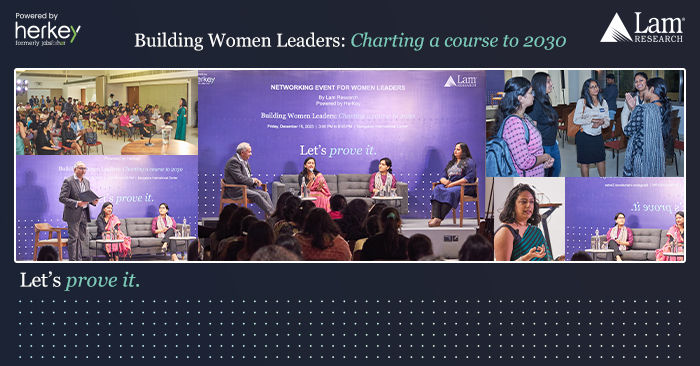A Blog By VMware: What Women Coders Want
- Shruthi
- in
- Back to Work, Career Development, Expert Advice, Working Women
- |
- 29 Oct 2018

“Every year, during the campus recruitment drives, I find more and more young women queuing up for interviews and I see more women in the workplace today than 20 years ago.”
- Sangeeta Giri, Director - Sales at VMware
Representation and more importantly participation of women in the workforce, especially in technology has improved over the years, and I am sure that with the right supportive policies, gender equality in technology will be an accepted reality soon.
Of course, there is still room for improvement. For every Sheryl Sandberg leaning in, we still have a Susan Fowler who is subjected to harassment.
Equal pay for equal work is still a sore subject worldwide.
A study by NASSCOM reveals that the Indian technology industry has 26 % women in engineering roles. On an average, they transition to managerial roles after 8+ years of experience whereas men do so in 6 years. More worryingly, only 7 % women reach the C-Suite.
Most women’s career growth runs in parallel with major developments in their personal life. A supportive policy framework is essential to help them manage it all. India already has some of the most progressive maternity policies in the world that can be the foundation for building diversity policies.
Here are some ideas on how companies can nurture a truly inclusive culture.
- Use Technology for Flexibility: Companies must realize that women face some unique challenges by way of familial and social pressures that most men don’t. It is imperative to address these challenges by way of employee-friendly policies that allow work modes and initiatives to bring back women to the workforce after a break. Technology has made it possible for work to happen anywhere, anytime and from any device and it is time companies made use of this to allow women some flexibility in the way they engage.
- Address Bias: Bias is a significant issue in the Indian technology sector, where most people are conditioned to think of science and technology as male pursuits and women in technology are perceived as less capable than their male counterparts. Organizations that allow teams to get together in a semi-formal environment to talk about issues that affect them at work are bound to see a change in people’s behaviour as they understand different perspectives.
- Establish Role Models and Mentors: Organizations that invest in formal mentorship programs are more likely to have a stronger pipeline of women managers and leaders. Most women, especially in the Indian technology sector, lack mentors who can not only understand their unique struggles but also provide encouragement and lead by example. Formal mentorship programs for women by women leaders, networking events, forums fill that crucial gap and provides the guidance women need to put their careers on the fast track.
- Bring back the girls to STEM: We must go back to school and tell young girls that STEM is for them as much as it is for their male classmates. Thankfully, girls in STEM is now a matter of worldwide focus with even the UNICEF and the World Economic Forum making a note of the inequalities in STEM gender statistics from across the world. In India, schools, colleges, and technology companies must work together to encourage more girls to pursue their interest in science and technology through focussed programs.
Today we live in a world where technology is all pervasive and this interface is only going to deepen with time. Technology companies need a workforce that is skilled, creative and will present diverse outlooks. Women bring with them a depth of ideas and perspectives that can only add value to a company’s innovation endeavors.
The new generation of women techies are bold and confident and slowly but steadily growing in numbers. It is now up to the organizations to give them the support and freedom they need to flourish further.
About The Author:
Sangeeta Giri lives in Bangalore and works at VMware as Director Sales. She has over 23 years of industry experience across ERP, IT Services and Infrastructure. Sangeeta holds a Master’s in Business Management from Osmania University, and Bachelors in Commerce from Kasturba Gandhi College for Women.








